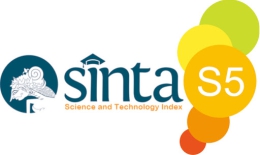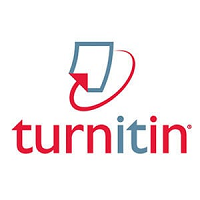Pengaruh Konflik Peran Ganda dan Stress terhadap Komitmen Organisasi
DOI:
https://doi.org/10.36423/jumper.v1i1.210Keywords:
dual role conflict, stress, organizational commitmentAbstract
The objectives of this research are to find out the influence of dual role conflict and stress, both simultaneously and partially, to organizational commitment of female employees Echelon IV at Tasikmalaya’s government. The method used in this research was survey method. 117 respondens from 21 institutions located at Tasikmalaya were chosen. The way of data collecting used questionnaire. Data was then analyzed using Path Analysis. The results of this research showed that there was a significant influence of dual role conflict to stress. There was a significant influence of dual role conflict, partially, to female employees’s organizational commitment. Stress has a significant influence, partially, to female employees’s organizational commitment. The dual role conflict and stress, simultaneously, have significant influences to female employees’s organizational commitment.References
Achmad Kuncoro, Engkos dan Riduwan. 2008. Analisis jalur (Path Analysis). Edisi kedua. Bandung: Penerbit Alfabeta.
Aminah Ahmad. 1996. Associations of Work-Family Conflict, Job Satisfaction, Family Satisfaction and Life Satisfaction: A Study of Married Female Secretaries. Pertanika J. Soc. Sci. & Hum. 4(2): 101-108 (1996) ISS: 0128- 7702 Penerbit: Universiti Putra Malaysia http://psasir.upm.edu.my/3101/1/Associations_of_Work-Family_Conflict,-Job_Satisfaction,_Family_Satisfaction.pdf
Anatan, Lina & Lena Ellitan. 2009. Manajemen Sumber Daya Manusia dalam Bisnis Modern. Bandung: Alfabeta.
Azazah Indriyani. 2009. Pengaruh Konflik Peran Ganda dan Stres Kerja terhadap Kinerja Perawat Wanita Rumah Sakit. Tesis Program Studi Magister Manajemen Pascasarjana Universitas Diponegoro Semarang. http://eprints.undip.ac.id/16657/1/AZAZAH_INDRIYANI.pdf
Dita Astari Putri. 2012. Pengaruh Stres Kerja Terhadap Motivasi Kerja dan Kinerja Karyawan PT. Bank Syariah Mandiri Cabang Gajah Mada Medan. Skripsi Departemen Manajemen Fakultas Ekonomi Universitas Sumatera Utara. http://repository.usu.ac.id/handle/123456789/33884
Frone, M. R. 2003. Work-family Balance. In J. C. Quick & L. E. Tetric (Eds.). Handbook of occupational health psychology (pp. 143-162). Washington, DC: American Psychological Association.
Handoko, H. 2010. Manajemen Personalia & Sumber daya Manusia. BPFE: Yogyakarta.
Jacinta F. 2002. Stres Kerja. Artikel e-psikologi, Kamis 3 Januari 2002. Diunduh pada hari Rabu, tanggal 3 September 2014, pukul 13.25 WIB. http://www.e-psikologi.com/artikel/organisasi-industri/stress-kerja.
Kuntjoro, Zainuddin Sri. 2009. Komitmen Organisasi, Artikel E-Psikologi, 24 April 2009. Diunduh hari Senin, tanggal 1 September 2014, pukul 21.47. http://www.e-psikologi.com/artikel/organisasi-industri/komitmen-organisasi
Mochammad Nazir. 2005. Metode Penelitian. Jakarta: Ghalia Indonesia.
Nyoman Triaryati. 2003. Pengaruh Adaptasi Kebijakan Mengenai Work Family Issue Terhadap Absen Dan Turnover. Jurnal Manajemen & Kewirausahaan Vol. 5, No. 1, Maret 2003: 85 – 96. Jurusan Ekonomi Manajemen, Fakultas Ekonomi – Universitas Kristen Petra. http://puslit.petra.ac.id/journals/management/
Sekaran, Uma. 2006. Research Methods for Business. Jakarta: Salemba Empat.
Sugiyono. 2007. Statistik Untuk Penelitian, Edisi kesepuluh. Bandung: CV. Alfabeta
Suharsimi Arikunto. 2002. Prosedur Penelitian Suatu Pendekatan Praktik. Jakarta: Rineka Cipta.
Richardus Chandra Wirakristama. 2011. Analisis Pengaruh Konflik Peran Ganda (Work Family Conflict) Terhadap Kinerja Karyawan Wanita Pada PT. Nyonya Meneer Semarang Dengan Stres Kerja Sebagai Variabel Intervening. Skripsi Fakultas Ekonomi Universitas Diponegoro Semarang. http://eprints.undip.ac.id/32813/1/Skripsi_8.pdf
Veithzal Rivai dan Deddy Mulyadi. 2009. Kepemimpinan dan Perilaku Organisasi. Jakarta: PT Rajagrafindo Persada.
Veithzal Rivai dan Jauvani Sagala. 2009. Manajemen Sumber Daya Manusia untuk Perusahaan Dari Teori ke Praktik. Jakarta: PT Rajagrafindo Persada.
Downloads
Published
Issue
Section
License
The Authors submitting a manuscript do so on the understanding that if accepted for publication, copyright of the article shall be transferred to Jurnal Ekonomi Perjuangan (JUMPER)
This is an open-access journal in accordance with the Creative Commons Attribution-ShareAlike 4.0 International (CC BY-SA 4.0) license.
This permits users to:
Share - copy and redistribute the material in any medium or format
Adapt - remix, transform, and build upon the material for any purpose, even commercially
Under the following terms:
Attribution - You must give appropriate credit, provide a link to the license, and indicate if changes were made. You may do so in any reasonable manner, but not in any way that suggests the licensor endorses you or your use.
ShareAlike - If you remix, transform, or build upon the material, you must distribute your contributions under the same license as the original.
No additional restrictions - You may not apply legal terms or technological measures that legally restrict others from doing anything the license permits.











